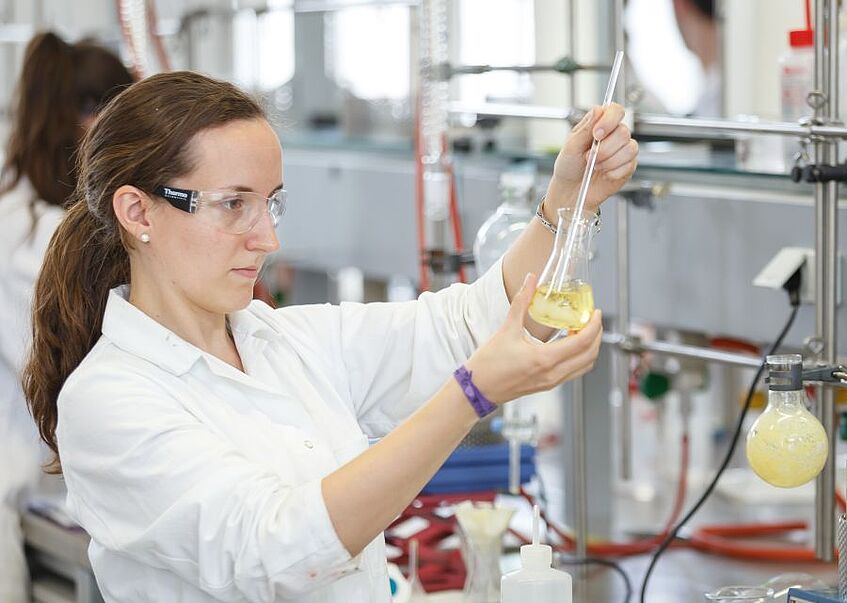Chemistry and Materials Technology (Master)

© Universität Wien / derknopfdruecker.com
The master's programme in Chemistry and Materials Technology provides a broad education that is of high quality in terms of content and methods, and aims at equipping students with long-term knowledge. It enables graduates to further specialise within the scope of a subject-specific doctoral programme, as well as embark on a career at the interface between chemistry and materials technology. Based on their education, graduates are able to compete internationally. The principles of chemistry and physics form the basis for graduates’ broad understanding of the relationships between composition, structure and morphology of materials, as well as their chemical and physical properties. Their competences in the area of chemistry enable them to synthesise, modify and characterise materials for various purposes.
Dipl.-Ing./DI
Degree Programme Code: 066 658
4 semesters / 120 ECTS credits
Language: German
NO entrance examination
Facts & Figures
- Students: n.a.
- Graduates in the last academic year: n.a.
- Number of semesters needed for graduation (median): n.a.
Data updated on: 03.12.2024
Attention
Instruction Language German
Please note that the instruction language of this programme is German. To start the degree programme, you need to hold a certificate of German proficiency on C1 level.
Admission Procedure
Information about the admission procedure
Information on Previous Studies:
In any case eligible degree programmes at the University of Vienna:
Getting started
Getting Informed
Study Programme
The master's programme consists of a compulsory module, comprising courses on the fundamentals, and courses that serve to harmonise the students’ different levels of previous knowledge. In addition, it consists of a block of elective modules, where students have to choose five modules out of various groups of modules, covering a range of subject areas (characterisation of materials, functional and structural materials and their applications, material classes and synthesis, theory and fundamentals of materials and their properties, as well as mechanics and processing of materials). Furthermore, students have to complete an optional module, which they can choose freely, and write a diploma thesis. Finally, they have to pass a final examination before an examination committee.
Five Concepts
which you will deal with during your studies:
- Material science
- Material synthesis
- Interface chemistry
- Polymer chemistry
- Solids chemistry
... and many more.
Overview of the programme structure & topics
Here you find the current offer of courses for this programme to gain better insight into the topics and structure. For more information please click on the respective level.
After Graduation
The theoretical and practical skills acquired during the degree programme enable graduates to apply the relevant methods in synthesis, processing and characterisation in a problem- and target-oriented manner. Furthermore, they are able to select material that is appropriate for the respective application purpose. Graduates are able to develop solutions to issues in the area of materials chemistry, both independently and in collaboration with engineers, physicists, material scientists and other scientists.
Graduates' Perspective on the Degree Programme
Graduates ...
- find employment within 2 months after graduation on average.
*You can find further information on career entry and career paths in the tracking of graduates "MA Chemistry".
